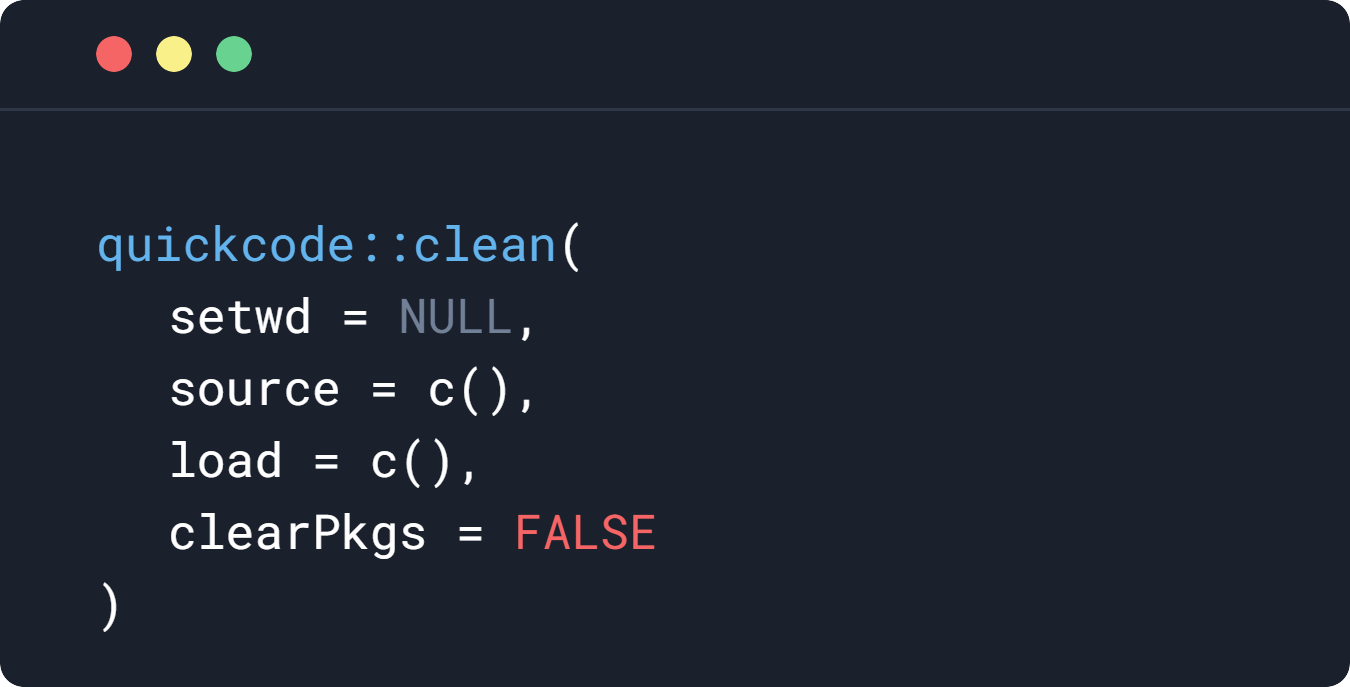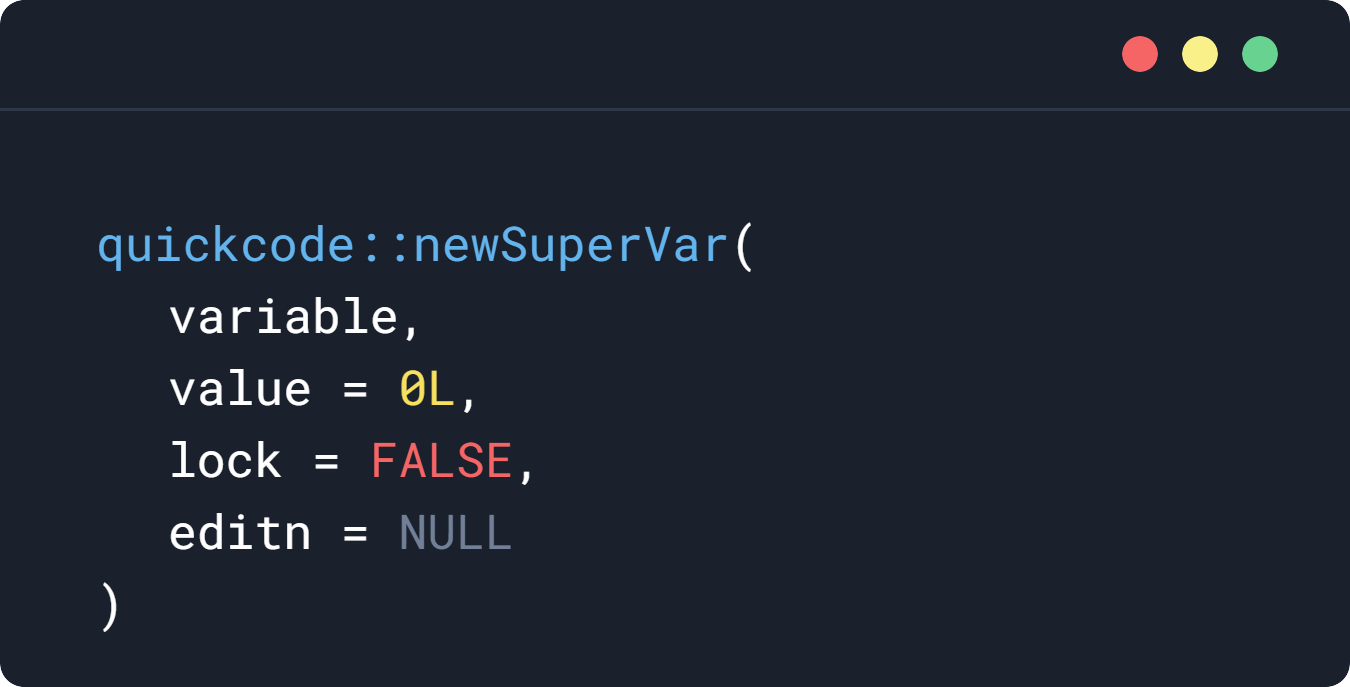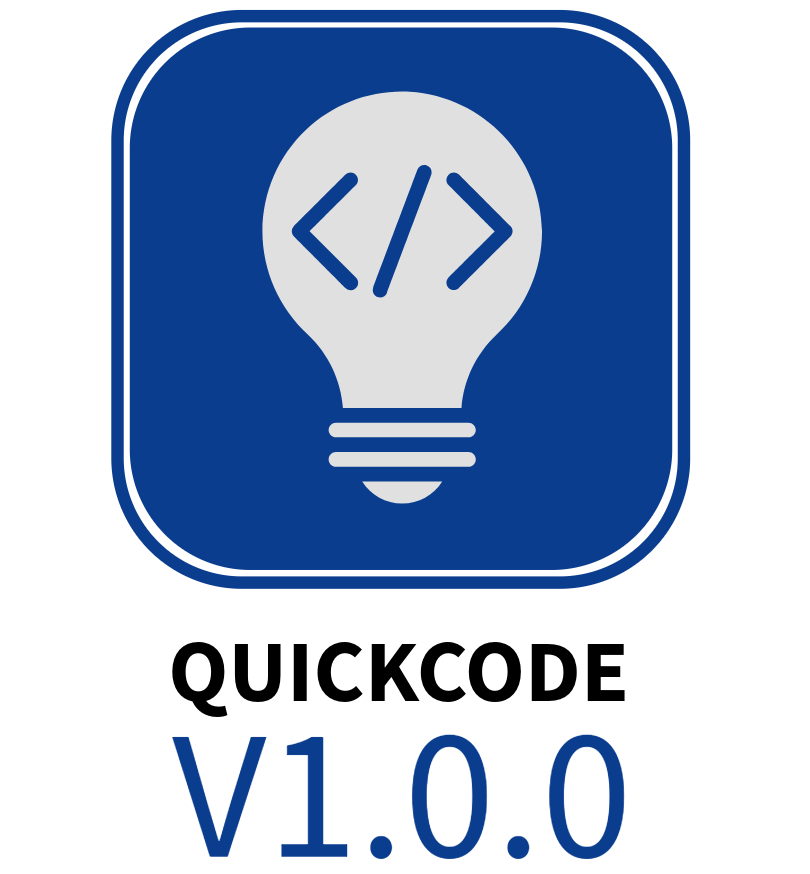NOT functions, R tricks and a compilation of some simple quick plus often used R codes to improve your scripts
Install
#From R CRAN
install.packages("quickcode") 70+ great functions to add to your R scripts!
Featured function
Add one-line code in your R script to clear environment, clear console, set working directory and load files

Create super variables with special characteristics

Some Quick R Examples
#simple conversion between boolean types
#input type is "vector"
baba <- c(TRUE,"y","n","YES","yes",FALSE,"f","F","T","t")
as.boolean(baba,1) # return vector as Yes/No
as.boolean(baba,2) # return vector as TRUE/FALSE
as.boolean(baba,3) # return vector as 1/0#apply the yesNoBool to convert between boolean
#input type is "data.frame"
usedata <- data.frame(ID = number(32))
usedata #view the dataset
usedata$yess = rep(c("yes","n","no","YES","No","NO","yES","Y"),4) #create a new column
usedata #view the modified dataset
#set all yess field as standardize boolean
yesNoBool(usedata,yess, type="bin") #set all as binary 1/0
yesNoBool(usedata,yess, type="log") #set all as logical TRUE/FALSE#initialize one or more variables
print(g) # Error: object 'g' not found
init(g,h,i,o)
print(g) # g = NULL
print(h) # h = NULL
init(r,y,u,b,value = 5)
print(r) # r = 5
print(b) # b = 5
print(z) # Error: object 'z' not found#add keys to a vector content for use in downstream processes
ver1 <- c("Test 1","Test 2","Test 3")
add_key(ver1)
for(i in ver1){
message(sprintf("%s is the key for this %s", i$key, i$value))
}
#check if the entry is not integer
not.integer(45) #returns TRUE
not.integer(45.) #returns TRUE
not.integer(45L) #returns FALSE
not.empty("") #returns FALSE
not.empty(NULL) #returns FALSE
not.empty(h<-" ") #returns TRUE
not.null(45L) #returns TRUE
not.null(h<-NULL) #returns FALSE
#clear R environment, set directory and load data
#note: the code below also automatically loads the quickcode library so that all other functions within package can be used easily
quickcode::refresh()
quickcode::clean()
#or combine with setwd and source and load
quickcode::clean(
setwd = "/wd/",
source = c(
"file.R",
"file2.R"
),
load = c(
"data.RData",
"data2.RData"
)
)
#shorthand for not in vector
p1 <- 4
p2 <- c(1:10)
p1 %nin% p2
#add to a vector in one code
p1 <- c(6,7,8)
p2 <- c(1,2,3)
vector_push(p1,p2)
print(p1)
#add to a data frame in one code
p1 <- data.frame(ID=1:10,ID2=1:10)
p2 <- data.frame(ID=11:20,ID2=21:30)
data_push(p1,p2,"rows")
print(p1)
#remove from a vector in one code
p1 <- c(6,7,8,1,2,3)
vector_pop(p1)
print(p1)
#remove from a data frame in one code
p1 <- data.frame(ID=1:10,ID2=1:10,CD=11:20,BD=21:30)
data_pop(p1) #remove last row
print(p1)
data_pop(p1,5) #remove last 5 rows
print(p1)#load libraries and print names along with all versions loaded
quickcode::libraryAll(
dplyr,
r2resize,
ggplot2
)
